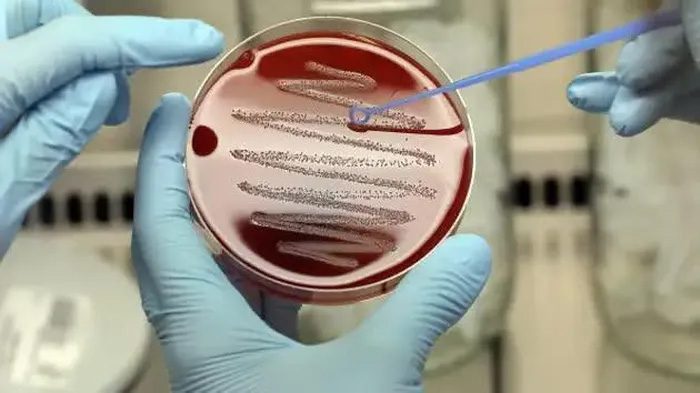This development, according to researchers, will create challenges in preventing drug-resistant superbugs.
Antimicrobial resistance (AMR), which the World Health Organization (WHO) refers to as a “silent pandemic,” is causing a global health crisis.
The United Nations health agency has previously declared AMR as one of the top 10 global threats to human health, estimating that approximately 1.3 million people die directly each year due to drug-resistant pathogens.
WHO emphasizes that this number is on the verge of “soaring” and without urgent action, it will lead to higher public health, economic, and social costs, pushing many into poverty, especially in low-income countries.
In the current context, antibiotics are medications used to prevent and treat infections in humans and animals. However, their misuse or overuse is a primary cause of AMR.

Misuse of antibiotics is the main cause of AMR. (Image source: Getty Image).
AMR occurs when microorganisms such as bacteria, viruses, fungi, and parasites evolve despite the presence of drugs designed to kill them. Recent studies have shown that climate change is exacerbating the AMR crisis in various ways.
“Climate change is significantly affecting our planet, especially as rising global temperatures lead to more transmissible infectious diseases, including AMR bacteria,” said Tina Joshi, an associate professor of molecular microbiology at the University of Plymouth, UK.
“The Silent Pandemic”
A report published by the United Nations Environment Programme earlier this year, titled “Bracing for Superbugs,” addressed the role of the climate crisis and other environmental factors in the development, spread, and transmission related to AMR.
Specifically, higher temperatures are linked to the rate of antibiotic resistance gene transmission among microorganisms, the emergence of AMR due to the continuous disruption of extreme weather events, and increasing pollution that facilitates the development of drug-resistant microbes.
Scientists mentioned earlier this month that an unusual record rise in global temperatures means that 2023 is “almost certainly” going to be the warmest year on record. Heat waves driven by the climate crisis are causing extreme weather to occur more frequently and intensely.
Robb Butler, Director of the Infectious Diseases, Environment, and Health Division at WHO Europe, described AMR as “an urgent challenge to global health. It is a significant medical burden, costing EU member states approximately 1.5 billion euros (1.6 billion USD) each year in healthcare expenses,” Butler stated.
Robb Butler also expressed hope that the upcoming COP28 climate conference in the United Arab Emirates could provide a platform for international policymakers to begin recognizing the link between the climate crisis and AMR. The UAE will host the annual United Nations climate summit from November 30 to December 12.
“Of course, the issue remains that antibiotics are still controversial. They are expensive, high-risk – and we have not seen any antibiotics developed with sufficient unique properties to avoid resistance in the past 20 years. We have heard people talk about this silent pandemic, but we should not remain silent. We must discuss this issue much more,” Butler emphasized.
According to Butler, perhaps the greatest concern is how to encourage industry leaders to address AMR at a time when they believe investment should focus solely on other research and development areas – such as producing a highly profitable obesity drug.
“I can think about how society might change depending on the more cautious use of antibiotics to avoid creating antibiotic resistance. But if there is absolutely no innovation, we are almost losing. And that really worries me,” Butler stressed.
Joshi from the University of Plymouth echoed this sentiment, describing the AMR diagnostic process as “completely broken” and calling on policymakers to urgently restore this process.
Meanwhile, Thomas Schinecker, CEO of Swiss pharmaceutical company Roche, stated that policymakers have not drawn lessons from the COVID-19 pandemic, suggesting that this could have serious implications for the health crisis related to AMR.
“I do not believe that we have learned from the recent COVID-19 pandemic, nor do I think we are better prepared for the next pandemic. One of my concerns is that antibiotic-resistant bacteria will cause a silent pandemic. Therefore, we need to focus on preparing for such scenarios in the future,” Schinecker emphasized.


















































